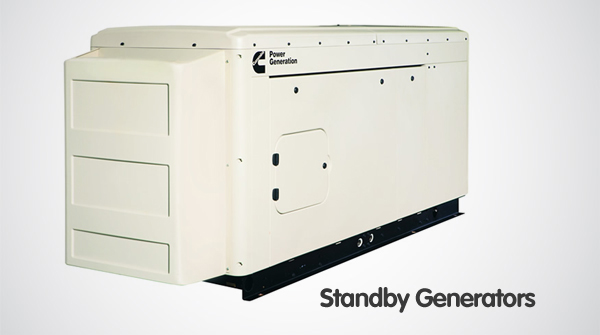Standby Generators

* This site contains affiliate links for which we may be compensated.
Standby generators are a backup electrical system that power on automatically when there is a power outage. An automatic transfer switch on the generator senses power loss seconds after a utility outage then transfers the electric load after signaling the generator to power on. They can run on natural gas or liquid propane vapor; both allow for easy transition from utility to the generator’s backup power.
Once electricity is restored to the circuits, the transfer switch will immediately signal the generator to power off after transmitting the electrical load back to your home’s utility. When it powers off, the generator returns to standby mode and reruns the cycle when there is no power.
Do I Need A Standby Generator?
There are a lot of factors that may justify your decision to purchase a standby generator. However, generally it boils down to your desire to maintain the convenience and comfort on your home.
In situations when the electricity supply from your utility provider is cut off, your home’s heating and cooling system will be down. In addition, your refrigerator and other appliances will be disabled, during winter your pipe could be frozen and your basement flooded. A standby generator will monitor your home and ensure that when there is a power outage these situations will not arise.
Standby Generators Hazard and Safety Tips
– Appoint a skilled electrician to install the generator.
– Install a carbon monoxide detector.
– Inspect the generator at least once every month.
– Check cords to ensure that there are no defects that could cause a fire.
– Never interact with your standby system while it is in use,
– Install the generator in a location where exhaust fumes will not affect you and other residents.
– Install your generator where it will not easily come in contact with water or snow.
Buying Guide and Tips
When you decide to purchase a generator you should always consider:
How much you have to spend: For most people, price is a major determining factor when searching for a standby generator. Standby generators vary in price and generally start at $1899 and can cost up to $8000. Decide on your spending budget and find a standby generator within that range.
What wattage do you need: The second and most important thing is to determine the power requirement of the equipment and appliances in your home. The generator you purchase should carry a wattage higher than what is required to power your home. Instead of searching for manufacturer’s manual for old appliances, hire a trained electrician and have them determine what size generator your need.
By purchasing an electric generator you can avoid the discomfort of dealing with a power outage. A standby generator will allow your home appliances and lights to maintain regular operation. Remember that every house is different, so consider the specific needs of your home when you shop for your standby system. A generator with a lower wattage can damage your appliances and create the need for more costly repairs.







